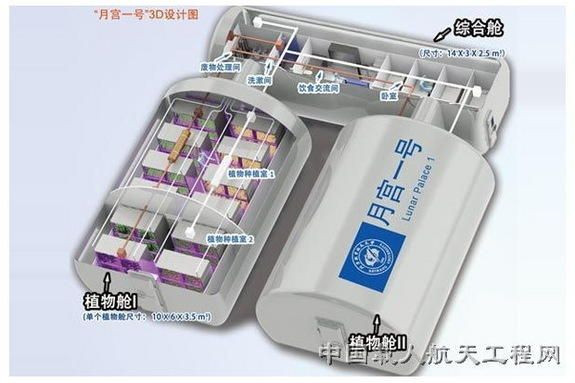China's 'Lunar Palace' Ecosystem Capsule Brings Nation Closer To Living On Moon

China's global expansion plans have taken a big step skyward with the latest results of research from the country's new biosphere ecosystem, dubbed "Lunar Palace 1."
“We believe humans can one day live outside the earth,” Captain Xie Peizhen, one of two women on the three-member research team who took part in a 105-day mission inside the Lunar Palace [short for Permanent Astrobase Life-support Artificial Closed Ecosystem], said in a report issued Thursday by Chinese state-media Xinhua. “That’s why we were part of this experiment. This is our dream.”
Located at the Beijing University of Aeronautics and Astronautics, the government-sponsored Lunar Palace is an airtight capsule where Xie and fellow researchers Wang Minjun and Dong Chen spent more than three months testing the unit's viability as a bio-regenerative life system that humans can feasibly live in.
Upon concluding their experiment last month, the crew was recognized as the first Chinese biospherians to participate in long-duration multicrew sealed cabin research. According to Space.com, the experiment was largely successful -- aside from the crew's sun-deprived pale skin and moments of edginess from being stuck in close quarters.
The Palace facility is a 500-cubic-meter capsule that is divided into one living module, and two plant cultivation modules, where the crew grew lentils and cucumber vine plants. Xie began working on the project 10 years ago, when she was still an undergraduate, starting out with "dirty work" like waste disposal and micro-organism management. Her job included farming yellow mealworms, which would be the crew's primary protein source.
But the experiment also posed mental challenges. Wang, the only married team member, said she relied on Internet chat and monthly visits from her husband through a window. “If one day humans were to leave the earth and live on another planet in a sealed, unfamiliar place, loneliness would be the greatest challenge,” she said. Even little things, like sunlight, were sorely missed. “It was the first time we had seen sunlight in a month,” Wang said of one instance when a ray of light reflected off a building into the capsule. “I could not find words to express the happiness.”
Physiologically, the three researchers also had to adjust to high levels of carbon dioxide, which causes accelerated heart rates and sometimes breathing difficulties.
But the long days of mealworms and cabin fever were worth it to Xie, Wang and Dong for what their efforts may contribute to the larger mutual dream of going to space.
Said Dong: “If I could travel in space, my life will have been worth it.”
© Copyright IBTimes 2024. All rights reserved.






















